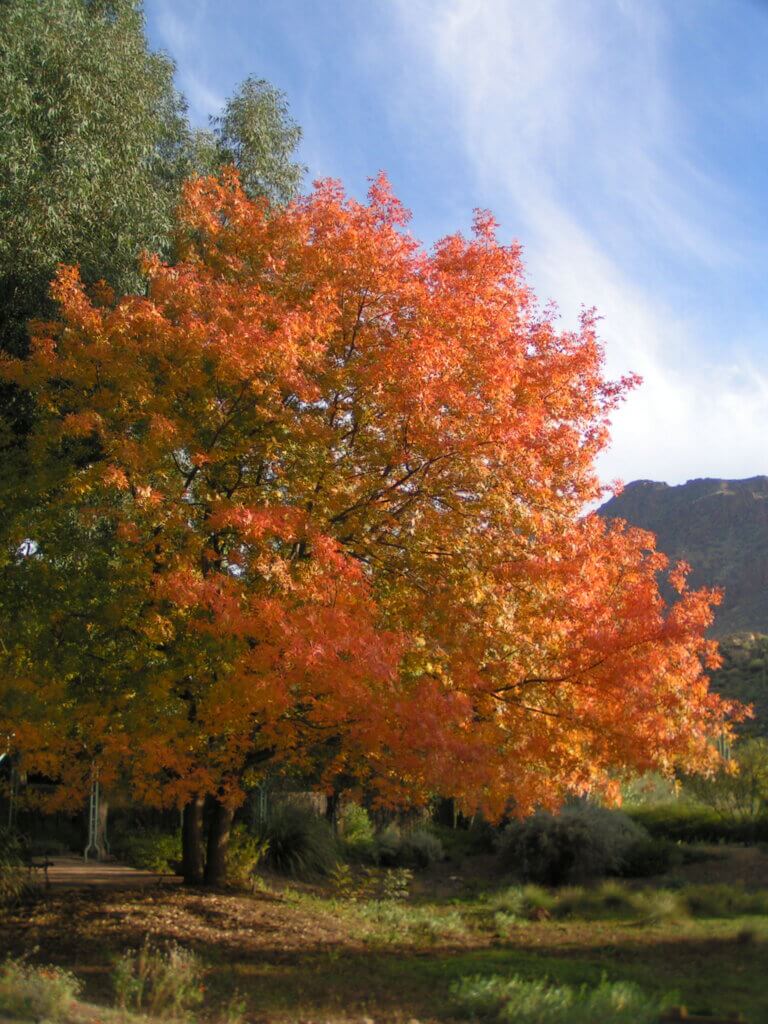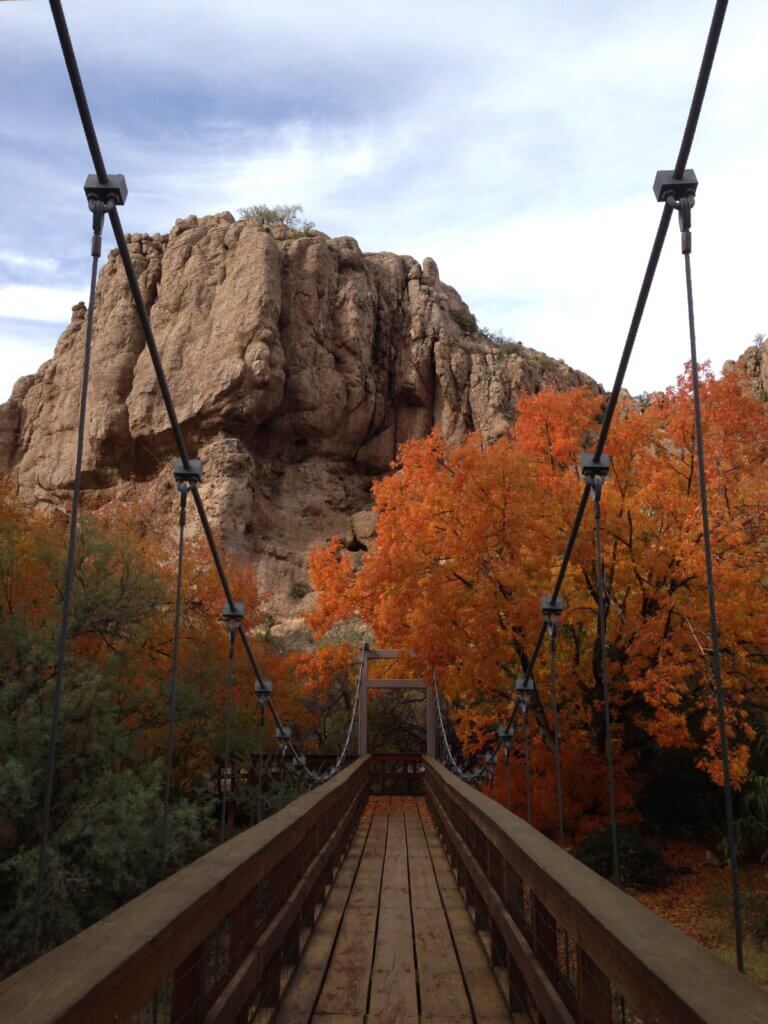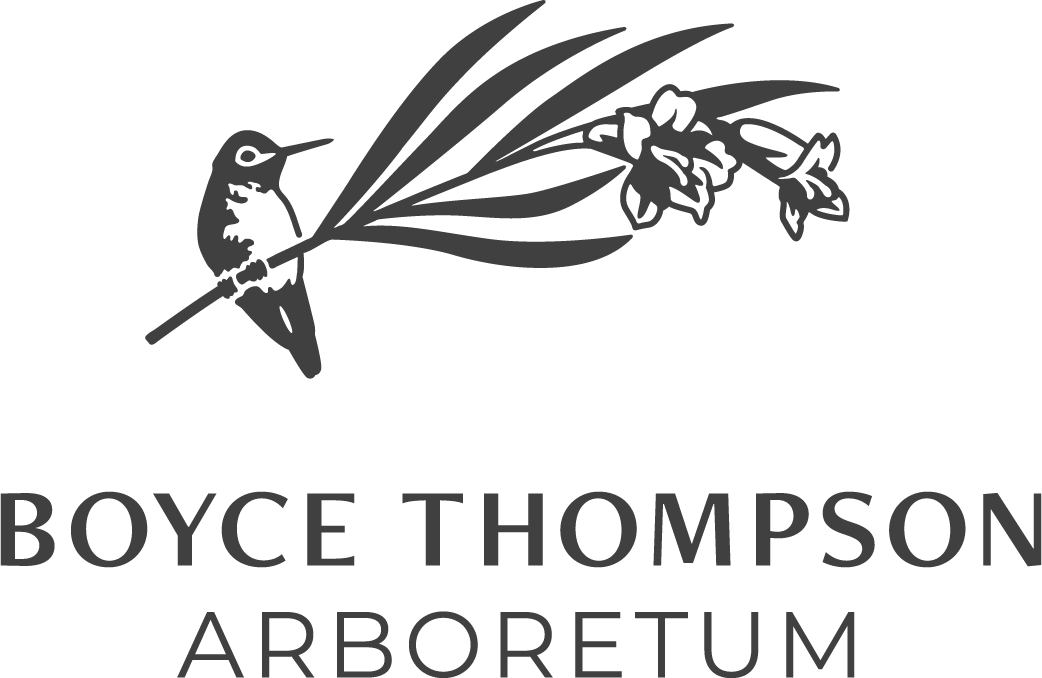BTA Fall Foliage Forecast

Second to spring, fall is one of the busiest times here at the Arboretum as locals and tourists flock here to witness the pageantry of fall foliage. Some consider fall in Arizona to be the anticipated time of year– a welcome reprieve from the long, hot summers and a transition to the shorter and cooler days of winter.
The Science Behind Why Leaves Change Color
The science of why leaves change from green to an awe-inspiring masterpiece of yellow, orange, red, purple, and brown colors remains the same every year. Chemicals in the leaves called pigments are responsible for the color of the leaves. There are four primary pigments in leaves, Xanthophyll produces yellows, and carotene is responsible for the gold and orange color. Anthocyanins make reds, purples, and sometimes bluish hues and require bright sunlight. Chlorophyll is the green pigment necessary for photosynthesis and effectively masks the other pigments during spring and summer.
As days grow shorter in the fall, chlorophyll production begins to slow and eventually stops. It gradually breaks down, allowing the other, more colorful pigments to prevail. Other factors must also occur, including cool nights, sunny days, adequate soil moisture, and high leaf sugar content. Even then, the timing of when the best color will happen can be challenging to predict.
The Best Time To See Fall Color at BTA
Generally, peak color at the Arboretum happens within a three-week period between mid-November and early December. During this period, pomegranates, canyon hackberries, willows, pecans, and our famous grove of scarlet-orange Chinese pistache will (most likely) be at their peak color, as will the cottonwoods in Queen Creek Canyon.


Fall Color Procession at the Arboretum
Late November is the best time for consistent, predictable color. Still, the display can begin as early as late October and extend into mid-December. Here are a few standouts to look for in approximate chronological order by color:
Yellow
Jujube, Zizphus jujube
Vitex, Vitex agnus-castus
Pomegranate, Punica granatum
Pecan, Carya illinoensis
Mexican buckeye, Ungnadia speciosa
Soapberry, Sapindus saponaria var. Wrightii
Little-leaf mulberry, Morus microphylla
Canyon hackberry, Celtis reticulata
Arizona sycamore, Plantus reacemosa var. Wrightii
Native ash, Fraxinus velutina
willow, Salix gooddingii
Arizona black walnut, Jugulans major
Fremont cottonwood, Populus fremontii
Orange to red
Lemonade berry, Rhus trilobata
Chinese pistache, Pistacia chinensis
Heavenly bamboo, Nandina domestica
River bush willow, Combretum erythrophyllum
